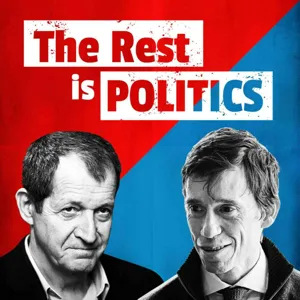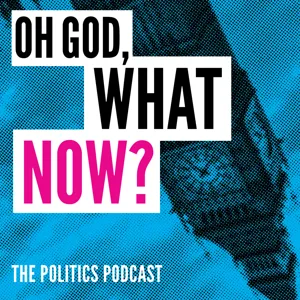Podcast Summary
Burrows Furniture and Sleep Number prioritize customer satisfaction and innovation: Burrows Furniture offers adaptable, durable seating solutions with easy assembly, customizable colors, and fast free shipping. Sleep Number provides personalized comfort with smart beds adjustable for firmness and temperature.
Both Burrows Furniture and Sleep Number prioritize customer satisfaction and innovation in their respective industries. Burrows Furniture focuses on creating adaptable and durable seating solutions, ensuring easy assembly, customizable colors, and fast free shipping. Sleep Number, on the other hand, offers personalized comfort with their smart beds, allowing individuals to adjust firmness and temperature settings for optimal sleep. Rishi Sunak, the UK Prime Minister, marked his one-year anniversary in office this week. In his new year speech, he set five pledges for 2023, including halving inflation, growing the economy, reducing debt, cutting NHS waiting times, and stopping small boat crossings. Inflation has come down from 10.7% to 6.7%, indicating progress but not quite meeting the target. The economy is growing, albeit slowly, with an estimated 0.3% growth in GDP. Reducing debt remains a challenge, as national debt still equals 97.3% of GDP. NHS waiting times and small boat crossings are ongoing issues that have yet to be significantly addressed. Overall, Sunak's progress on his pledges has been mixed, and the future of his premiership remains uncertain.
Record-breaking NHS waiting lists and multiple challenges for Rishi Sunak's administration: Rishi Sunak faces challenges on NHS waiting lists, immigration, and economic issues like inflation and rising household costs. NHS waiting lists in England hit a record high, immigration progress is seen, but economic progress may not be felt by the public. Conservative Party's base is worried about rising interest rates and mortgage costs.
Rishi Sunak's administration is facing challenges on multiple fronts, including record-breaking NHS waiting lists, immigration, and economic issues like inflation and rising household costs. The NHS waiting lists in England have reached a record high of 7.75 million, with some estimates suggesting the true number could be as high as 20 million when accounting for hidden waiting lists. Sunak's pledge to "stop the boats" has seen some progress, with the number of people crossing the English Channel in small boats down from 45,000 in December 2022 to 26,000 so far in 2023. However, progress on other pledges, such as reducing inflation and improving the Conservative Party's reputation, may not be as apparent to the public. Sunak was elected to address the party's reputation after Liz Truss, and while he may make progress on economic issues, the real test will be whether the public feels the impact of these changes in their daily lives. The Conservative Party's base is particularly concerned about rising interest rates and mortgage costs, which could lead to losses at the next general election if not addressed effectively.
Rishi Sunak's premiership and the Truss legacy: Sunak faces challenges in appeasing party right, dealing with inflation, and public perception, while navigating Truss's lingering legacy
Rishi Sunak's premiership has been focused on cleaning up the economic mess left by his predecessor Liz Truss, but the lingering effects of her policies and public perception continue to pose challenges. Sunak is grappling with the need to appease the right wing of his party by lowering taxes, while dealing with high inflation and demand on public services. Truss, on the other hand, is delivering an alternative budget and making herself a prominent figure, which Sunak might prefer to keep low-key due to her association with the previous administration's economic missteps. The situation is a classic conservative dilemma, and it remains to be seen how Sunak will navigate it when the autumn statement is released. The public's perception of the government's ability to improve their lives and reduce taxes is crucial for the Conservatives, but the fiscal situation doesn't allow for significant tax cuts at the moment. The Truss legacy continues to cast a long shadow over Sunak's premiership.
The Conservative Party's reputation and electoral prospects are negatively impacted by leadership changes and scandals: Ongoing scandals, including partygate and Tory sleaze, continue to damage the Conservative Party's image and electoral prospects, making it difficult for Rishi Sunak to distance himself and present a smooth image as leader.
The Conservative Party's frequent leadership changes and associated scandals, including partygate and Tory sleaze, have significantly damaged the party's reputation and electoral prospects. Rishi Sunak, as the current leader, has been unable to fully distance himself from these issues, despite his attempts to present a smooth and managerial image. Ongoing scandals, such as those involving Nadim Zahawi and Peter Bone, continue to drag down the party's image and may impact upcoming by-elections. Sunak and his officials have acknowledged the challenges, but it remains unclear what, if anything, he can do to effectively address these legacy issues before the next election.
Criticism of Rishi Sunak's perceived wealth and out-of-touch image: Despite efforts to present a relatable image, Sunak faces criticism over financial interests and wife's non-dom status, damaging his public perception and potentially impacting popularity.
Rishi Sunak's tenure as Prime Minister has been marked by criticism over his perceived wealth and out-of-touch image. This criticism extends beyond his colleagues and includes issues like his failure to declare financial interests and his wife's non-dom status. These controversies have contributed to a public perception that Sunak may not truly understand the struggles of everyday people. Despite attempts to present himself as a family man and a successful immigrant, the "out of touch" label has stuck, with incidents like forgetting how to use a debit card adding fuel to the fire. Ultimately, Sunak's popularity as a politician may hinge on his ability to connect with the public and address these concerns, rather than just focusing on big spending initiatives like the furlough scheme.
Prime Minister Sunak's Identity Crisis: Sunak's policy shifts reflect an identity crisis as he balances personal instincts, party expectations, and public opinion, with contrasting actions on climate change and fiscal conservatism.
Prime Minister Sunak's recent policy shifts, particularly on climate change and fiscal conservatism, reflect an identity crisis as he tries to balance his personal instincts with the expectations of his party and the public. Sunak's actions contrast with his past role as chancellor, where he oversaw significant spending under Boris Johnson's government. His mixed bag of policies, such as watering down net zero targets and targeting smoking, have left many wondering who he truly is as a prime minister. The crisis management skills he demonstrated during the Windsor framework agreement have been overshadowed by his current stance, which appears to be heavily influenced by the more conservative and vocal factions within his party.
Rishi Sunak's Political Identity and Vision: Despite being Chancellor during the pandemic, Sunak's political identity and vision remain unclear. Criticisms of his education policies and attempts to change persona have led to disquiet among some MPs. However, there's no doubt that his presence may be a drag on the Conservative Party's popularity.
Rishi Sunak's political identity and vision remain unclear to many, despite his prominence within the Conservative Party and his tenure as Chancellor during the pandemic. His education policies have been criticized as haphazard, and his attempts to change his political persona have been met with skepticism. The lack of a clear vision, combined with the party's poor performance in by-elections and the ongoing power-sharing crisis in Northern Ireland, has led to disquiet among some Conservative MPs, but there is no serious push to remove Sunak before the next election. However, polling suggests that his presence may be a drag on the party's popularity. The winter framework, which was one of Sunak's achievements during the pandemic, has not received the recognition it deserves due to the ongoing political instability in Northern Ireland. Overall, Sunak's political future remains uncertain, and he faces the challenge of winning over voters with a clear and compelling vision.
Rishi Sunak's declining popularity is a concern for the Conservative Party: Only 1 in 5 voters believe Rishi Sunak would make the best prime minister, and his popularity has decreased significantly since the Conservative Party Conference. This could make the party uneasy as a general election approaches, and some may consider another leadership contest.
A recent poll by The Independent indicates that only 1 in 5 voters believe Rishi Sunak would make the best prime minister, a decrease from 25% before the Conservative Party Conference. This is in contrast to the 24% of voters who said they would back the Conservatives in a general election. This shift suggests that Sunak's popularity has waned, and he is now seen as a drag on the party rather than a asset. This could make members of the party uneasy, especially as a general election approaches. It would be unwise for the party to consider another leadership contest, but some may be tempted to do so if they fear losing their seat. Overall, Sunak's declining popularity is a significant development for the Conservative Party as they prepare for the upcoming election.




